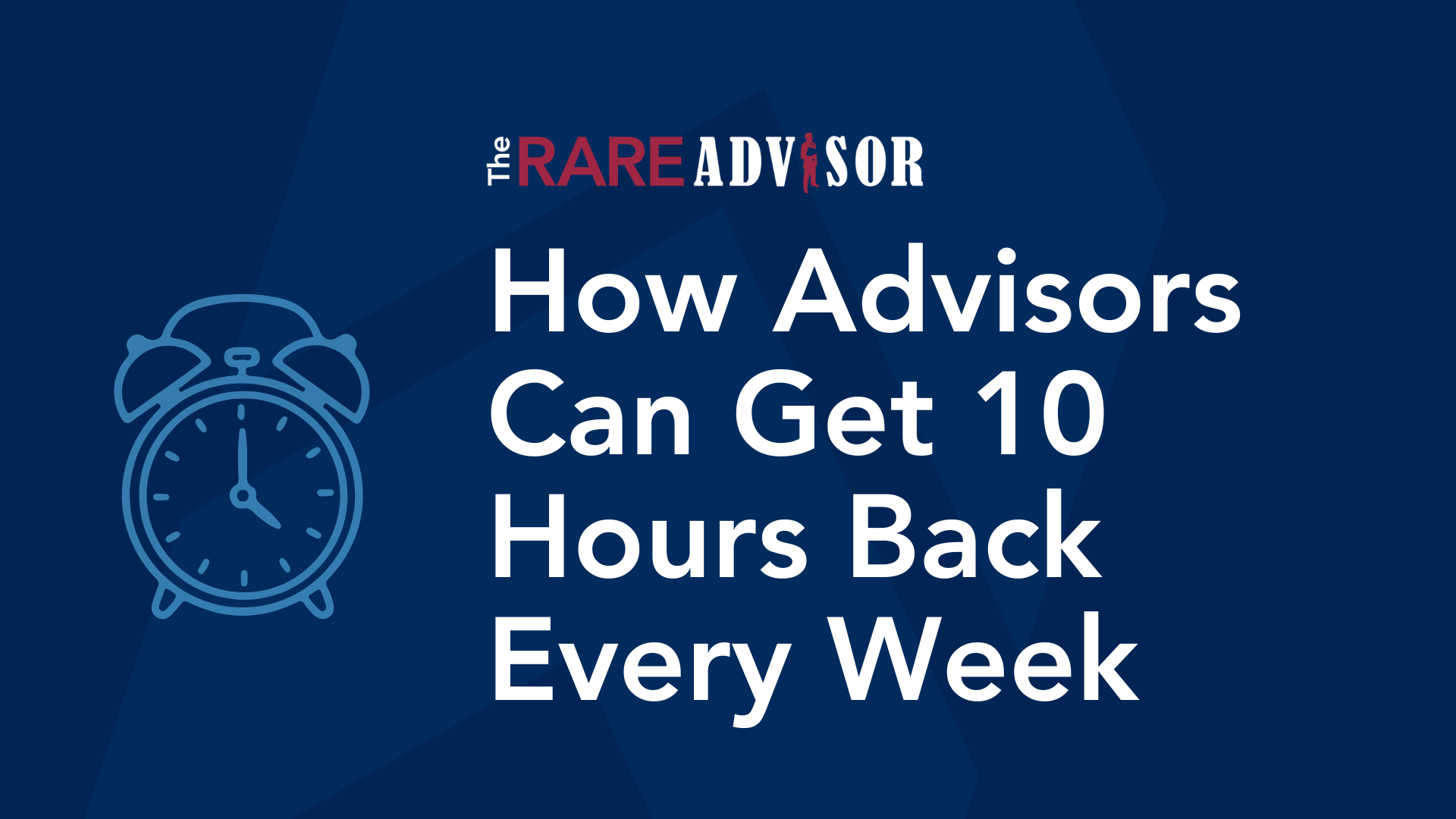3 Common Advisor Pitfalls

After a decade of consulting some of the nation's top financial advisors, I’ve seen countless pitfalls advisors eventually slide into. Below are the three most common.
Playing Defense
Many advisors fall into the trap of continually playing defense to “keep up” with what every other advisor is doing. This could be seminars, radio, direct mail, etc. This is the marketing they do because they have to, not necessarily because they want to. The problem with continually playing defense is the short-term focus that provides no professional contrast. By making a splash and creating quick revenue today, these advisors fail to plan long-term. This leads to building a business without any depth.
The solution? Playing offense means forgetting the quick sale and focusing on long-term strategies to develop efficient, profitable, and sustainable growth in their practice.
Depth vs. Width
Advisors who focus on width – the number of clients they can acquire – end up with transactional customers. They’re willing to take on any and every client, regardless of ideal fit, for the sake of gaining new business. Often, this leads to short-term, fragile relationships that the advisor is constantly spending an inordinate amount of time with and is in perpetual jeopardy of losing.
The solution? Advisors who focus on depth – the quality of client they take on based on a financial and philosophical fit - end up with durable relationships that build upon themselves.
Never Right-Sizing
When an advisor has focused on width, they eventually have more customers than can be managed. To compensate, they hire assistants and associates to keep the level of service above water. This lowers profitability and most advisors end up spending 80% of their time on clients who generate only 20% of the revenue.
The solution? By right-sizing their practice to work with only suitable and ideal clients, they not only increase profitability, but quit trading time for money and achieve liberation and order within their practice.
Avoiding these pitfalls can be tough, especially in the early years of building a practice. This industry is conditioned to focus on short-term marketing, and advisors are hammered with a barrage of ideas and sales systems for the “next best thing” in new client acquisition every day. Product and marketing aren’t the solution, business refinement and perfecting the client relationship are.
Chances are, you don’t have to make wholesale changes to how you conduct business. But, by adjusting just a few things in your practice, you can realize meaningful results. If you’d like to discuss a process that addresses these pitfalls and puts your practice on track for long-term success, we’d love to chat.
Author Info

Matt Jaksa is a Business Development Recruiting Consultant with USA Financial, joining the firm in 2017. He is responsible for helping...
Related Posts

The Psychology Behind Your CTA: Why Prospects Don’t Click “Book a Call”
In this episode of Financial Advisor Marketing Playbook, Mark Mersman breaks down the real psychological barriers that stop prospects from clicking “book a call” on an advisor’s website—and how small language and design changes can dramatically improve conversions. You’ll learn practical, compliant fixes including softer CTA language, expectation statements, empathy‑based messaging, simplified design, and reassurance techniques that lower emotional friction. If you want a website that encourages prospects to take the first step confidently, this episode delivers actionable guidance advisors can implement immediately.

How Advisors Can Get 10 Hours Back Every Week
In this episode of The RARE Advisor, host Aaron Grady and USA Financial Pareto coach and Practice Management Consultant Allan Oehrlein dive into time allocation as a core lever for advisory success. They unpack the biggest time drains—email, unsolicited calls, and open-door interruptions—and lay out a practical framework for calendar rebalancing that starts with personal time, management time, client appointments, dedicated communications windows, “work on the business” time, and high-impact growth activities. With real-world stories showing how advisors shift from reactive days to structured weeks (and even reclaim Fridays), Aaron and Allan share easy-to-implement tips: color coding calendars, scheduling buffers, daily huddles, and call/appointment protocols. If you’re ready to audit your calendar, define your ideal week, and create structure that truly liberates your practice, this conversation is your next step.

What Billion-Dollar Brands Teach Advisors About Client Loyalty
In this episode of the Financial Advisor Marketing Playbook, Mark Mersman explores what billion-dollar consumer brands like Peloton, Apple, Airbnb, Disney, and Starbucks understand about loyalty—and how financial advisors can apply these lessons to their own practices. Discover why loyalty is emotional, not transactional, and learn practical strategies to create belonging, simplify your process, showcase identity, design unforgettable experiences, and personalize client interactions. Tune in to transform your value proposition and build a community your clients never want to leave.

The Psychology Behind Your CTA: Why Prospects Don’t Click “Book a Call”
In this episode of Financial Advisor Marketing Playbook, Mark Mersman breaks down the real psychological barriers that stop prospects from clicking “book a call” on an advisor’s website—and how small language and design changes can dramatically improve conversions. You’ll learn practical, compliant fixes including softer CTA language, expectation statements, empathy‑based messaging, simplified design, and reassurance techniques that lower emotional friction. If you want a website that encourages prospects to take the first step confidently, this episode delivers actionable guidance advisors can implement immediately.

How Advisors Can Get 10 Hours Back Every Week
In this episode of The RARE Advisor, host Aaron Grady and USA Financial Pareto coach and Practice Management Consultant Allan Oehrlein dive into time allocation as a core lever for advisory success. They unpack the biggest time drains—email, unsolicited calls, and open-door interruptions—and lay out a practical framework for calendar rebalancing that starts with personal time, management time, client appointments, dedicated communications windows, “work on the business” time, and high-impact growth activities. With real-world stories showing how advisors shift from reactive days to structured weeks (and even reclaim Fridays), Aaron and Allan share easy-to-implement tips: color coding calendars, scheduling buffers, daily huddles, and call/appointment protocols. If you’re ready to audit your calendar, define your ideal week, and create structure that truly liberates your practice, this conversation is your next step.

What Billion-Dollar Brands Teach Advisors About Client Loyalty
In this episode of the Financial Advisor Marketing Playbook, Mark Mersman explores what billion-dollar consumer brands like Peloton, Apple, Airbnb, Disney, and Starbucks understand about loyalty—and how financial advisors can apply these lessons to their own practices. Discover why loyalty is emotional, not transactional, and learn practical strategies to create belonging, simplify your process, showcase identity, design unforgettable experiences, and personalize client interactions. Tune in to transform your value proposition and build a community your clients never want to leave.

